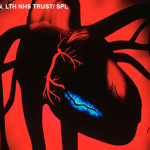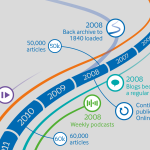 • Last week, we saw that prospective registration of trials with specific outcome measures could have a huge impact. Addressing this kind of publication bias is a great step forward, although other forms of bias still keep researchers and science publishers alike awake at night.
• Last week, we saw that prospective registration of trials with specific outcome measures could have a huge impact. Addressing this kind of publication bias is a great step forward, although other forms of bias still keep researchers and science publishers alike awake at night.
• Our most recent endgames article highlights how even randomised controlled trials (RCTs), often regarded as the gold standard in medical research, can be subject to selection bias, ascertainment bias, and resentful demoralisation.
 • One way to get around selection bias is demonstrated in our newly published research article, comparing myocardial infarction care in Sweden to care in the United Kingdom. Using such large longitudinal cohort studies based on country wide registry data is a huge undertaking, but in this case it reveals important differences that could change how guidelines are applied. However, as noted by Kumar Dharmarajan in his linked editorial, there is some way to go before all patient data is properly recorded.
• One way to get around selection bias is demonstrated in our newly published research article, comparing myocardial infarction care in Sweden to care in the United Kingdom. Using such large longitudinal cohort studies based on country wide registry data is a huge undertaking, but in this case it reveals important differences that could change how guidelines are applied. However, as noted by Kumar Dharmarajan in his linked editorial, there is some way to go before all patient data is properly recorded.
 • Our recent celebration of 20 years of The BMJ website has highlighted how research is the backbone of our journal’s reputation and success. When we asked readers and contributors which articles were most memorable, nine of the 20 nominations were original research articles.
• Our recent celebration of 20 years of The BMJ website has highlighted how research is the backbone of our journal’s reputation and success. When we asked readers and contributors which articles were most memorable, nine of the 20 nominations were original research articles.
We have recently published a summary of “the ones that got away,” several of which deal with research and research methods. The results of our readers poll are also available. To see more about the last 20 years of The BMJ website, (including screenshots from 1996 to show how far we’ve come), our infographic timeline is available at www.bmj.com/twenty.
Will Stahl-Timmins is interactive data visualisation designer, The BMJ.
